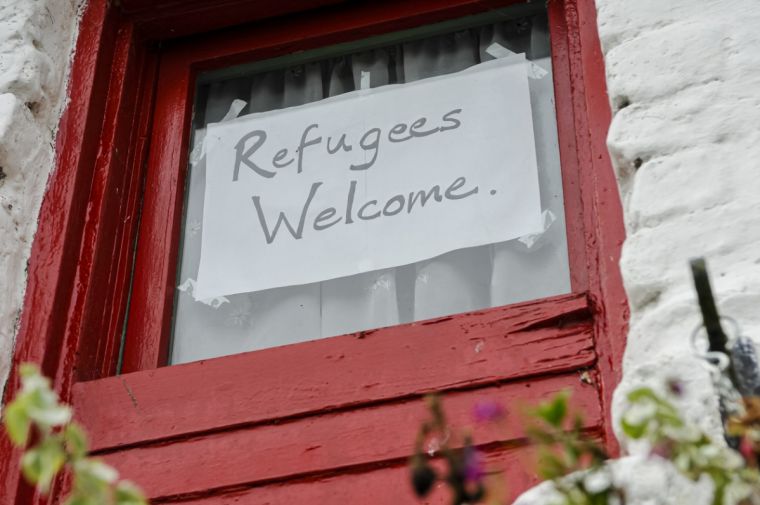Church called to 'love without discrimination' after questions raised over bomber's Christian conversion

Christian leaders working with asylum seekers and refugees say their job of welcoming the stranger continues despite the Church coming under fire in the wake of the Liverpool suicide bombing.
Media reports have claimed that Home Secretary Priti Patel wants to overhaul the asylum system after it emerged that the Liverpool bomber was helped by Christians and confirmed inside Liverpool Cathedral in 2017, three years after a failed asylum bid.
The Telegraph claimed that there was a belief within the Home Office that converting to Christianity has become "standard practice" among asylum seekers looking for a way "to game the asylum system" because they can say they were persecuted in their own countries.
Social entrepreneur Dr Krish Kandiah, who has been helping churches welcome refugees from Afghanistan and Hong Kong, said the media reports were "not fair" and that they "have no bearing on the Church's mission" to love God and love our neighbour.
"That neighbour is made in God's image and therefore we have a responsibility to care for them," he said.
"We would never condone acts of terror or violence, but we must still show mercy and care without discrimination.
On whether the Church should be more questioning of conversion claims, he said: "Jesus himself said that not everyone who calls him Lord is a follower and he warned of wide and narrow gates and the tree being judged by its fruit, so we are all encouraged to check whether we are truly followers of Jesus and whether we really have genuine faith in God.
"But for me to judge another person, there's prohibition against that and only God can judge that.
"For us as Christians, therefore, it goes back to what Jesus said, to love our neighbour and love our enemies. We are to love without discrimination.
"Of course, we want to be wise and good citizens, and when we notice things that look dangerous or worrisome, then we need to report those to the proper authorities, but our first and primary calling is to love our neighbour."
Emily Holden, joint CEO of Welcome Churches, which has been equipping churches to work with refugees and asylum seekers, said it was not uncommon for new arrivals to explore the Christian faith.
"We have a freedom in the UK to explore faith in a way that people may not have in other countries around the world and so when people arrive in the UK, they often enjoy the freedom they have to find out about religions different from the one they were brought up in," she said.
"But the Church's mandate to welcome the stranger and to preach the Gospel to all nations is still there just as much this week as it was last week.
"The Church still has that calling and needs to be right at the centre of welcoming the stranger."
The Church of England has defended its engagement with asylum seekers.
A spokesman said "it is not the role of clergy to establish the legitimacy of asylum claims and to assess security implications".
"We are not aware of any evidence to suggest a widespread correlation between conversion to Christianity, or any other faith, and abuse of the asylum system," he said.
A spokesman for Liverpool Cathedral said that it had "developed robust processes for discerning whether someone might be expressing a genuine commitment to faith", including regular attendance and participation in a course on Christianity.
"We would expect someone to be closely connected with the community for at least two years before we would consider supporting an application," he said.
The Rev Canon Gareth Jones, Refugee Coordinator within Chelmsford Diocese, which has helped to resettle 300 refugees from Syria and Afghanistan since 2015, said he was proud of the Church of England's commitment to walking alongside some of the world's most vulnerable people.
"The Church nationally offers considerable support to refugees and asylum seekers, often picking up the work statutory agencies fail to do," he said.
"Tens of thousands of Christians volunteer everyday to walk alongside displaced peoples, often at great cost to themselves."
He said the Church would never offer baptism to someone if it did not believe their faith to be sincere.
"Whilst the Church will always want to help ensure that refugees and asylum seekers are processed humanely and have access to fair justice, we are not in any way responsible for assessing the veracity of asylum claims or the security implications of individuals. This is the job of the Home Office and Security Services," he continued.
"The Church will always report those who seek to abuse the system and cause harm to the relevant authority, and would never offer its most precious and sacred gift of baptism to those it believes do not truly desire it or understand the responsibilities of receiving it."











